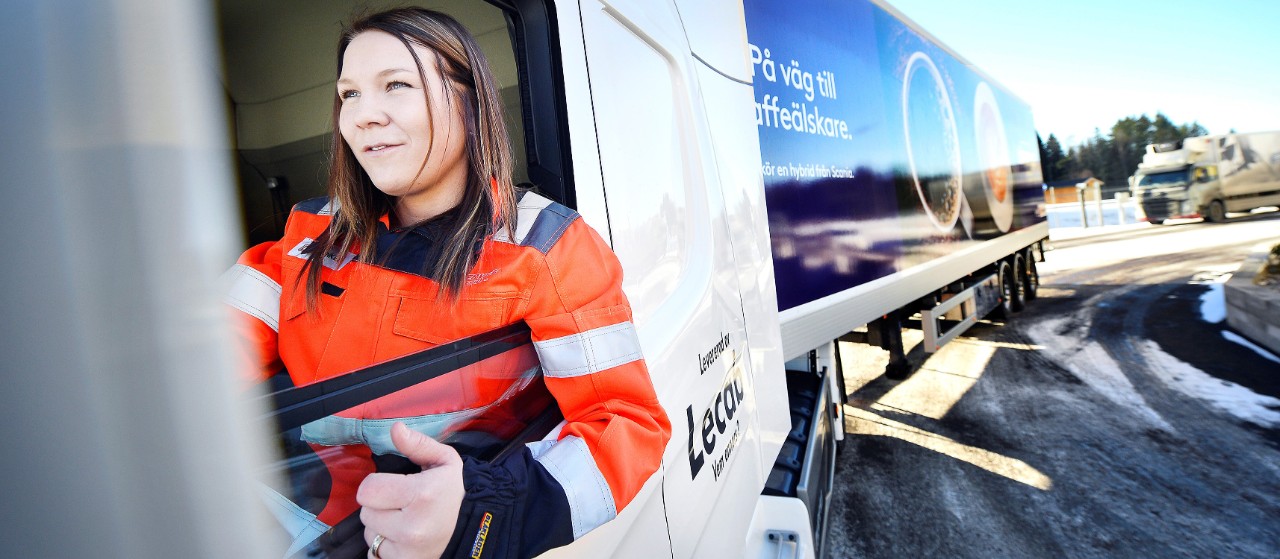
Grounds for sustainability
20 FEBRUARY 2017
Taking responsibility for people and the environment is a cornerstone in the operations of Swedish coffee roaster Löfbergs. Its efforts extend over the entire value chain – from coffee bean to coffee cup; from the farm to the end-consumer.
A fourth-generation, family-run business, Löfbergs produces more than ten million cups of coffee a day. In 2016, the company inaugurated a new warehouse on the outskirts of Karlstad, a city in central Sweden with a population of 90,000. However, the coffee roastery is still located in the city centre, which necessitates transports in and out of town.
That’s why, in keeping with its commitment to sustainability, Löfbergs has now put the first Scania hybrid tractor unit into operation.
The Scania P 320 tractor has been supplemented with a hybrid driveline that allows the truck to drive on electric power for nearly two kilometres on just a ten-minute charge of the vehicle’s battery. This can lower fuel costs by 18 percent, but, even more importantly, the truck can drive silently – below 72 dBA – and make its deliveries without disturbing Karlstad’s residents.
In parallel with the electric battery, the truck runs on Hydrotreated Vegetable Oil (HVO). The combination of battery power and HVO reduces carbon emissions by more than 90 percent in comparison with conventional diesel.
Thus, when the truck reaches the city limits, Löfbergs’ driver pushes a button, so the truck switches from running on HVO to the battery for the journey to the city centre roastery. The hybrid truck can make a total of 15 round trips a day between the roastery plant and the warehouse in the suburb of Välsviken every day.
Quietly. Very quietly.
“At first I thought there was something that was wrong,” says Ann-Christin Lundman, the driver of the freight service. “It is unusual; it is completely silent.”
Löfbergs’ Managing Director Lars Appelqvist is happy to be first, but hopes this is only the start of its sustainable transport initiatives.
“Even if our transports only account for three percent of the climate impact from coffee, we try to do everything in our power to minimise the environmental effects,” he says.